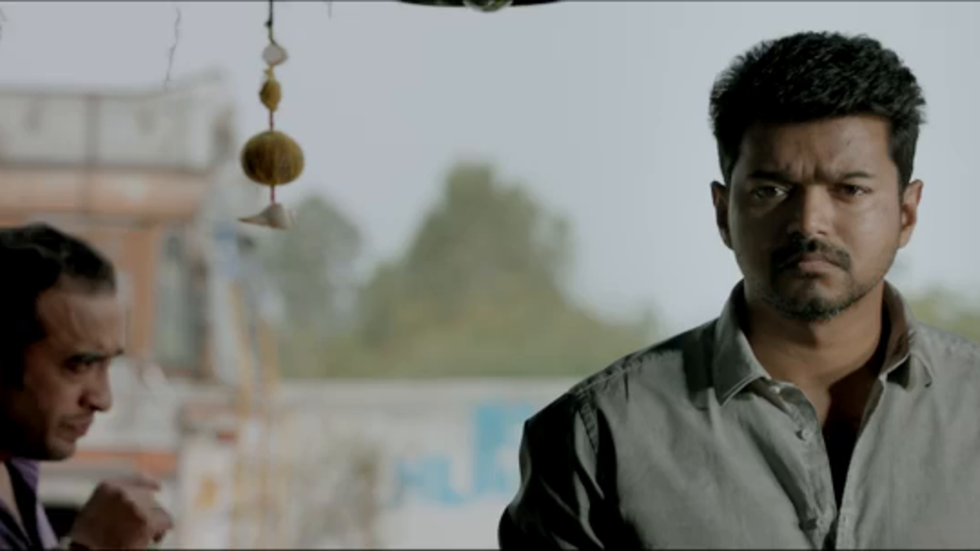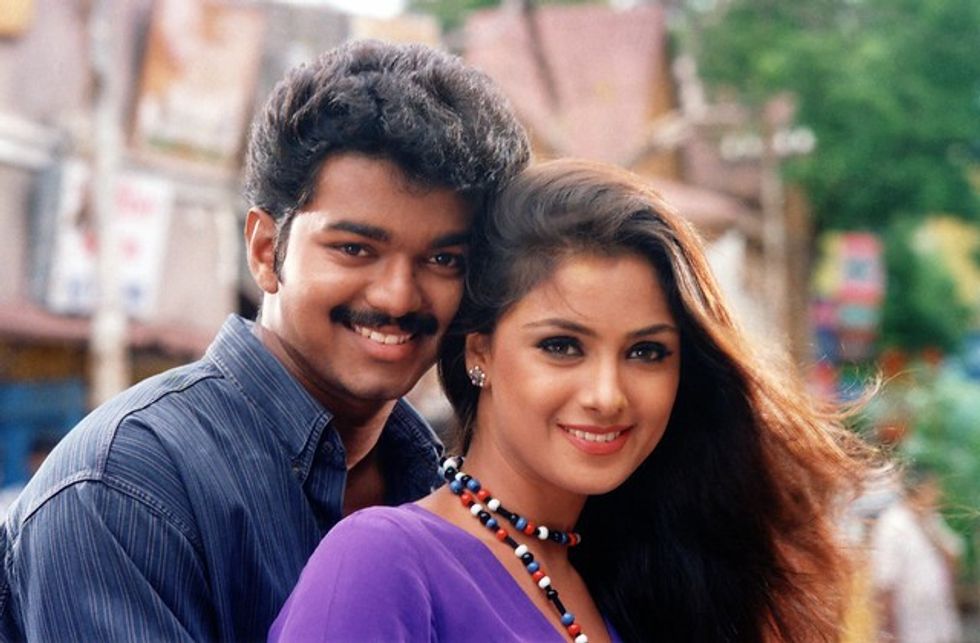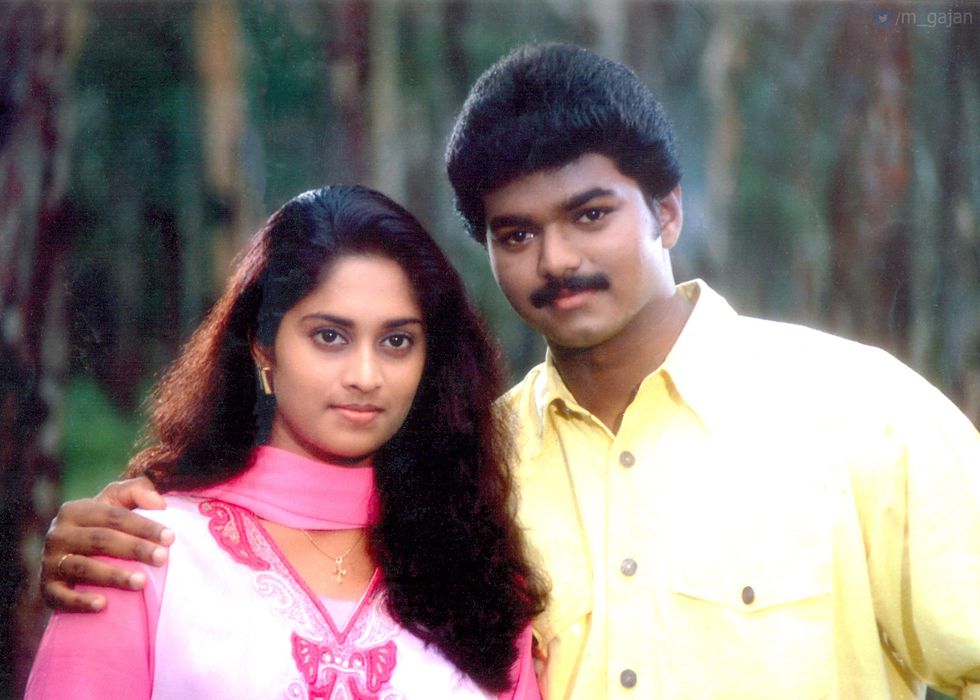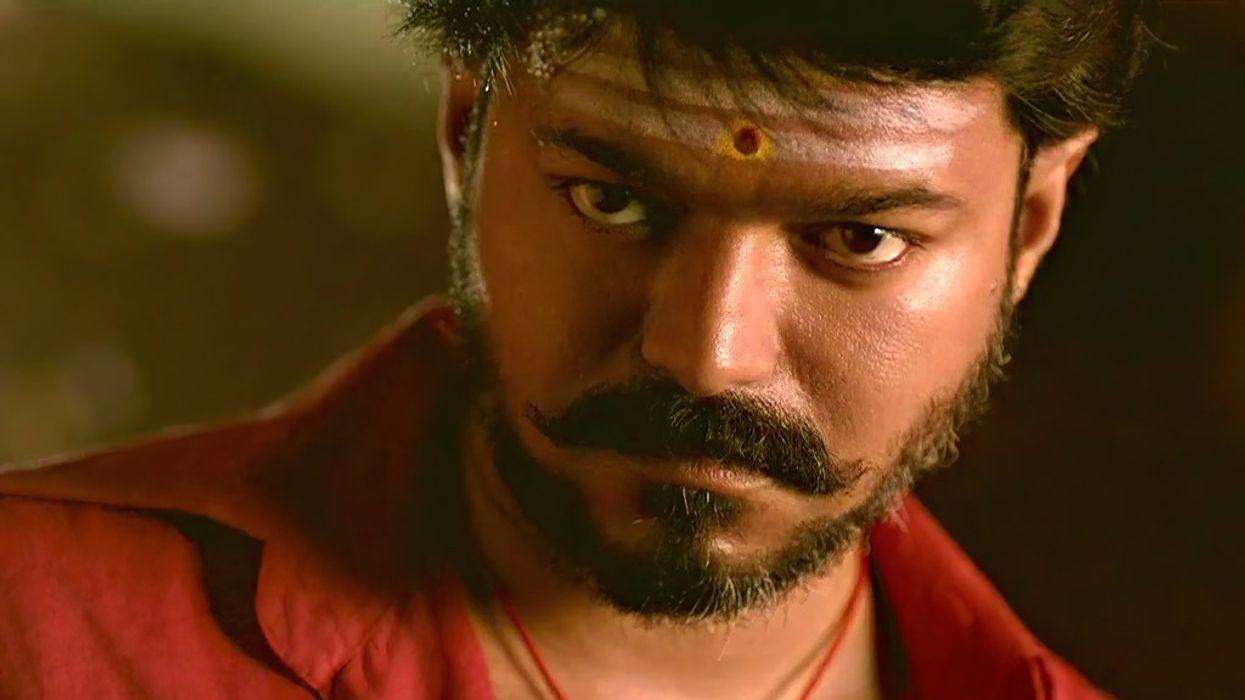Vijay can make a theatre erupt with just his presence. He is often boxed into labels like ‘mass hero’, ‘box-office king’ and ‘Thalapathy’. While those titles fit (no arguments there), they also distract from the core truth – Vijay’s immense acting ability.
As he turns 51 on June 22, it is the perfect time to look beyond the superstardom and revisit seven standout performances that reveal the powerhouse actor beneath the mass-hero persona.
Kaththi: This was the film that silenced critics who believed Vijay could only do ‘mass’ roles. Kaththi was not just a blockbuster – it was a benchmark in his career. And not because of the double role. Vijay pulled off something rare: he made you feel the difference between two men who looked the same but led entirely different lives. His restrained, nuanced portrayal of Jeevanandham, the social activist, stood in sharp contrast to the brash but evolving Kathiresan. The press meet sequence remains a highlight – powerful, emotional, and unforgettable.

Thuppakki: This was not just another action film – it redefined the template for commercial Tamil cinema. As army officer Jagadish, Vijay owned every frame with style, confidence and charisma. The tight screenplay fused slick action with smart plot, proving that mainstream cinema could be both intelligent and crowd-pleasing. The iconic interval line, “I’m waiting”, became a cultural moment in itself – short, sharp, and entirely unforgettable.
Mersal: Every superstar has a defining moment, and for Vijay, Mersal was it. Directed by Atlee, who balances emotion with spectacle, the film gave Vijay a platform to showcase his range and command. Playing three characters – Vetri, Maaran and Vetrimaaran – he did not just switch roles; he shifted energy, tone and rhythm. A particularly moving hospital scene peeled away the mass-hero veneer to reveal raw grief and moral outrage. It was a reminder that Vijay’s emotional depth is just as compelling as his screen presence.

Thullatha Manamum Thullum: Long before the Thalapathy era, Vijay charmed audiences with his performance as Kutty, an innocent singer entangled in a tragic love story. There was no grand hero entry here – just a man who had spent years in prison for a crime he did not commit, unsure of whether his lover was still alive. Director Ezhil opened the film on a sombre note, setting the tone for a romantic drama that won hearts, making Vijay and Simran a beloved pair in Tamil cinema. Vijay’s breakdown after learning of his mother’s death – alone, in a toilet – was a quietly devastating scene that showcased his early acting strength.
Master: In Master, Vijay stepped away from his typical invincible roles to play JD, an alcoholic professor haunted by personal failures. This was a flawed, deeply human character – one who made mistakes and sought redemption. Critics noted the vulnerability in his performance as a refreshing shift. Under Lokesh Kanagaraj’s direction, Vijay brought restraint and reflection to the role. And what is rare in Tamil cinema? A superstar letting a co-star (Vijay Sethupathi, in top form as Bhavani) steal scenes – and still holding his ground. Vijay did just that.

Ghilli: A masterclass in commercial cinema, Ghilli turned Vijay into an unstoppable box-office force. A remake of the Telugu film Okkadu, Dharani’s version arguably outdid the original. Vijay’s energy as Saravanavelu electrified the screen, and Vidyasagar’s soundtrack only amplified the impact. The cat-and-mouse tension with Prakash Raj’s now-iconic antagonist Muthupandi kept viewers hooked. Ghilli redefined action-entertainers and became a cult classic – so much so that its 2024 re-release drew crowds back to cinemas, proving its enduring appeal.
Kadhalukku Mariyadhai: This film was a turning point in Vijay’s career. Under Fazil’s sensitive direction and backed by Ilaiyaraaja’s soulful score, Vijay delivered a measured and mature performance as a young man in love. It was a far cry from the louder roles he would later take on – instead, his portrayal here was rooted in simplicity and sincerity. The film’s success firmly established him as a romantic hero and showed his ability to carry emotional material with conviction. It also redefined what a love story could look like in Tamil cinema at the time, making Vijay a household name.




